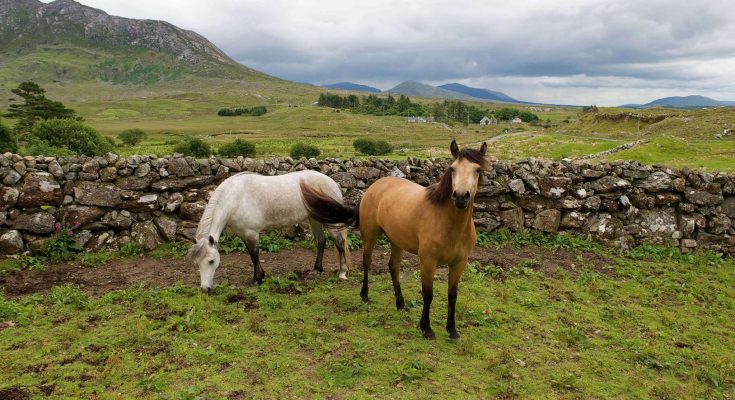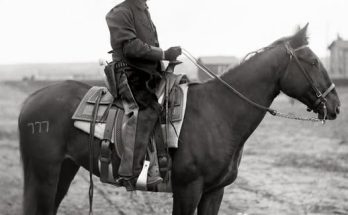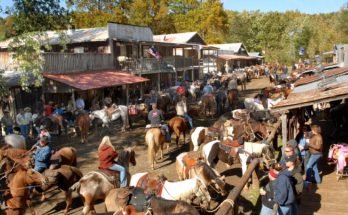𝐋𝐨𝐨𝐤𝐢𝐧𝐠 𝐭𝐨 𝐭𝐡𝐞 𝐅𝐮𝐭𝐮𝐫𝐞 𝐨𝐟 𝐭𝐡𝐞 𝐂𝐨𝐧𝐧𝐞𝐦𝐚𝐫𝐚 𝐏𝐨𝐧𝐲:
This weekend, the Connemara Pony community took an important step toward shaping the future of the breed. Inspectors came together to review and update the ideal linear profile, identifying key traits for improvement that will guide breeders over the next five years. While this is a positive and much-needed initiative, I feel compelled to share my personal thoughts on the current state of the breed, a breed I hold very close to my heart.
The Connemara Pony is unique and special to so many of us, but in recent years, I’ve felt it’s lost its way. The stocky, durable, and traditional Connemara that I grew up admiring has become increasingly hard to find. Instead, we’ve ended up with taller, sportier ponies that, while impressive in some ways, don’t quite feel like the Connemara Ponies of old. For me, this shift has come at a cost not just in terms of type, but also in terms of diversity, bloodlines, and the core characteristics that made the breed so versatile and enduring.
𝗪𝗵𝗲𝗿𝗲 𝗛𝗮𝘃𝗲 𝗪𝗲 𝗚𝗼𝗻𝗲 𝗪𝗿𝗼𝗻𝗴?
One of the biggest issues, in my opinion, is overbreeding. Too often, breeders seem to prioritize well-known bloodlines or the names of popular stallions over the actual quality of the pony they’re producing. Instead of focusing on what makes a Connemara truly exceptional, we’re seeing a trend toward breeding for trends and appearances. The result? Over-height ponies that look more like small sport horses than the versatile, durable Connemara that was once prized for its work ethic and resilience.
A bigger concern is whether breeders are thinking about the breed’s long-term future or simply responding to customer demand and the desire for profit. It seems to me that there’s a shift towards breeding for the market, looking to meet the demand for ponies that fit a more “sporty” mold, rather than focusing on preserving the traditional Connemara type. Are we prioritizing money over the breed itself? Is the Connemara becoming more like an Irish Sports Horse as a Warmblood or ponies that are being bred for performance and appearance rather than their historical and unique traits?
Don’t get me wrong, there are still breeders out there who are deeply committed to preserving the traditional Connemara type, and I applaud their dedication. But it feels like they’re in the minority, and the breed is at risk of losing its identity if we don’t take action.
𝗠𝗼𝘃𝗶𝗻𝗴 𝗶𝗻 𝘁𝗵𝗲 𝗥𝗶𝗴𝗵𝘁 𝗗𝗶𝗿𝗲𝗰𝘁𝗶𝗼𝗻
The discussions this weekend highlighted four key areas for improvement, shorter cannon bones, more sloping shoulders, deeper barrels, and better knee conformation. These traits align with what I believe the breed needs to return to its roots. A shorter cannon bone and stronger knees will improve durability and reduce leg strain. A more sloping shoulder will support smooth, balanced movement, while a deeper barrel will bring back that compact, traditional look and enhance stamina.
The length of the cannon bone is critical for soundness and performance. Shorter cannon bones mean stronger legs and reduced stress, which are essential for a pony that’s built to last.
A sloping shoulder is key for smoother movement and better balance, making it more comfortable for both pony and rider. This is particularly important for a breed so valued for its versatility.
A deeper barrel allows for a well-developed heart and lungs, which are crucial for stamina and endurance. It also gives that traditional, compact look that fits so beautifully into the Connemara’s heritage.
Strong, well-formed knees are vital for soundness and durability. Correcting conformation issues like offset knees ensures the pony is built to stay sound and healthy throughout its life.
But while these improvements are important, they’re just the start. We need to look beyond conformation and address the deeper issues in the breed, issues like the loss of bloodlines and a narrowing of focus.
𝐑𝐨𝐚𝐧𝐬 𝐚𝐧𝐝 𝐓𝐡𝐞𝐢𝐫 𝐃𝐢𝐬𝐚𝐩𝐩𝐞𝐚𝐫𝐚𝐧𝐜𝐞
One of the things that saddens me is the loss of roan Connemaras. When I was growing up, strawberry roan Connemaras were a common sight, adding a beautiful, distinctive quality to the breed. Even the rare bay roans were appreciated for their uniqueness. Unfortunately, today, these roans have almost disappeared from the breeding scene. There are no longer any strawberry roan stallions standing, and the few bay roans left are becoming increasingly rare. The breed has lost some of its diversity, and it feels as though these special bloodlines may be gone forever if we’re not careful.
𝐖𝐡𝐲 𝐓𝐡𝐢𝐬 𝐌𝐚𝐭𝐭𝐞𝐫𝐬
The Connemara Pony isn’t just a breed to me, it’s a part of my life, my history, and my heart. I remember the ponies of my childhood, the stocky, versatile types that could do anything you asked of them. Those ponies weren’t just beautiful; they were reliable, hardy, and full of personality. They embodied everything a Connemara should be.
It breaks my heart to see how much has changed. We’ve lost not only certain bloodlines but also the spirit of the traditional Connemara. The breed feels like it’s being steered away from its roots, and if we’re not careful, we’ll lose what made it so special in the first place.
𝐓𝐡𝐞 𝐖𝐚𝐲 𝐅𝐨𝐫𝐰𝐚𝐫𝐝
The five-year improvement plan is a step in the right direction, but we need to go further. Breeders need to move away from focusing solely on popular bloodlines and flashy stallions. We need to prioritize quality, diversity, and preserving the traditional Connemara type.
As a community, we have a responsibility to protect the Connemara Pony, not just as it is now, but as it was meant to be. That means preserving its versatility, its durability, and its unique identity. It means looking beyond trends and focusing on what truly matters.
For me, this isn’t just about breeding ponies. It’s about preserving a legacy, a tradition, and a breed that has brought so much joy and meaning to so many lives. The Connemara Pony deserves better, and it’s up to us to make sure it has a future that honors its past.
Let’s bring back the stocky, versatile Connemara the one that captured our hearts. It’s not too late, but we need to act now.


